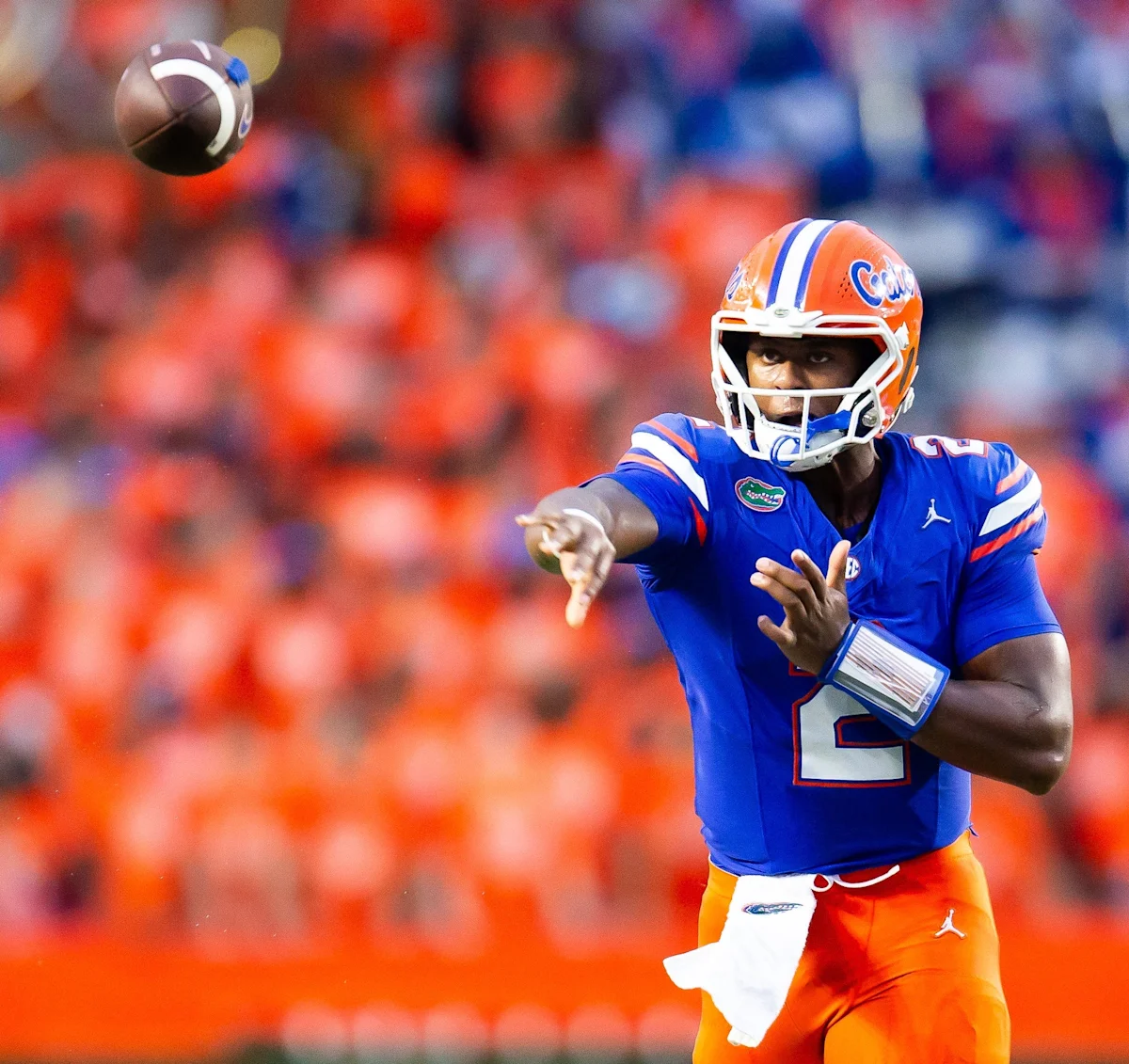The Florida Gators are no strangers to lofty expectations and national attention. Once again, they’ve secured a spot in ESPN’s prestigious Future Power Rankings, coming in at No. 15—a sign that the program is regaining traction and building toward long-term success under head coach Billy Napier. After years of inconsistent results and coaching transitions, Florida appears to be finding its footing in the ever-competitive Southeastern Conference, where powerhouse programs dominate the headlines and only the strong survive.
ESPN’s Future Power Rankings take a comprehensive look at which college football programs are best positioned for success over the next three seasons. This projection-based analysis considers a combination of factors—roster talent, quarterback situation, coaching staff, recruiting strength, and overall program stability. For Florida to earn the No. 15 spot, it suggests national analysts are seeing real evidence of progress in Gainesville.
Billy Napier’s rebuild hasn’t been without its challenges. The Gators have gone through some growing pains since he took over, but the foundation he’s laid is starting to look more solid. Recruiting is trending upward, the locker room culture has improved, and the team’s depth across key positions has become more competitive. Napier’s emphasis on discipline, physicality, and recruiting the right types of players is slowly shaping the identity of a team that has the tools to rise even higher.
One of the key reasons for Florida’s boost in the rankings is the growing optimism around their quarterback situation. After some uncertainty in past seasons, the Gators have begun to stabilize that position with a pipeline of young, high-upside talent. ESPN’s analysis often places significant weight on quarterback play, and Florida’s current and future options appear promising enough to warrant optimism. Whether it’s a breakout year from a current starter or the development of a future star, the Gators now have pieces in place to compete in high-scoring SEC battles.
Additionally, Florida’s recruiting class continues to be among the best in the nation. The Gators have consistently secured top-tier talent out of high school, particularly in the state of Florida, which is perennially loaded with elite prospects. Napier and his staff have made serious strides in keeping top in-state talent from heading elsewhere and are supplementing their roster with well-targeted additions from the transfer portal. This talent infusion is helping close the gap between Florida and perennial SEC contenders like Georgia, Alabama, and LSU.
Defensively, Florida has made significant upgrades. While the defense was a point of concern in recent years, the staff has added depth and explosiveness on that side of the ball. ESPN’s projections likely reflect confidence in the direction of the Gators’ defensive line and secondary—two areas that have seen improvement in recruiting rankings and performance. With a revamped coaching staff on defense and a renewed focus on fundamentals, Florida appears poised to re-establish a tough, SEC-style identity that can hold up in big games.
Another factor boosting Florida’s Future Power Ranking is the program’s long-term infrastructure. The recent completion of state-of-the-art football facilities has positioned Florida as a top destination for elite prospects. The Gators now offer a competitive NIL (Name, Image, and Likeness) program, enhanced player development resources, and an upgraded game-day experience that helps in both recruiting and retaining talent. These off-field improvements are becoming increasingly important in the modern college football arms race.
Looking at the broader SEC landscape, Florida’s timing may be just right. With the addition of Texas and Oklahoma to the conference, the SEC is about to become even more competitive, but it also creates fresh opportunities. Programs with stability and vision—like what Florida is building—will be better equipped to navigate this new terrain. Napier’s holistic approach to program-building, which includes a strong emphasis on academics, culture, and community engagement, is resonating with recruits and stakeholders alike.
Florida’s ranking at No. 15 also reflects a belief that they’re not far from breaking into the national title conversation. A few more pieces—an elite edge rusher, a dominant offensive tackle, or a game-changing receiver—could push the Gators into the top 10 within a year or two. The coaching staff’s ability to identify and develop talent is critical, and early returns suggest Florida is improving in that regard. Young players are seeing the field earlier, and veterans are showing measurable growth from year to year.
Of course, the Gators still have to prove it on the field. The SEC won’t hand out victories based on projections, and Florida’s 2025 schedule is no walk in the park. Matchups with Georgia, LSU, Tennessee, and now Texas and Oklahoma will test the team’s resolve. But unlike in years past, there’s a growing belief that Florida can compete toe-to-toe with the best in the country. That belief isn’t based on nostalgia—it’s based on tangible growth and a clearer vision for the future.
For Gator Nation, the No. 15 ranking should be seen as both an accomplishment and a challenge. It’s a sign that the program is heading in the right direction, but also a reminder that there’s still work to do. The SEC remains as cutthroat as ever, and the path to the top will require elite play on both sides of the ball, continued recruiting excellence, and a little bit of patience. Billy Napier has made it clear that this is a long-term project, and the program is beginning to reflect the values and structure he believes are necessary for sustainable success.
What makes this ranking particularly encouraging is that it was earned, not given. Florida didn’t stumble into relevance—they’ve had to work to claw their way back from several underwhelming seasons and cultural resets. The program’s resilience and willingness to adapt are paying off, and the reward is national respect from media outlets like ESPN. While the ranking doesn’t come with a trophy, it does represent a shift in perception: Florida is once again seen as a serious threat on the national stage.
In a college football world defined by change—conference realignment, NIL revolutions, and playoff expansion—the programs that thrive will be those that adapt while staying true to their core identity. For Florida, that identity is built on speed, toughness, and relentless competition. The Gators are beginning to resemble that image once again, and if current trends continue, a return to national championship contention may not be far off.
The journey back to elite status has been anything but linear, but few programs are as well-positioned as Florida to capitalize on the chaos of the modern era. With a steady hand at head coach, a roster full of potential, and one of the most passionate fanbases in college football, Florida’s future looks brighter than it has in years. The No. 15 spot in ESPN’s Future Power Rankings might just be the beginning of something much bigger.



